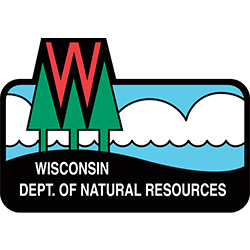Resource Details
Parks & Outdoor Recreation, Tourism, Transportation
Recreational Boating Facilities Grant Program (RBF)
The Recreational Boating Facilities Program (RBF), authorized under section 30.92, Wisconsin Statutes, encourages the development of recreational boating facilities and related activities by providing state cost sharing assistance to governmental units and qualified lake associations. The Governor appointed Wisconsin Waterways Commission (WWC) consists of 5 members each representing a specific geographic area of the state. The WWC makes funding recommendations to the DNR. The program’s funding source was a portion of a formula driven transfer of excise tax on gasoline consumed for marine purposes. In 2010, the funding source switched to the Knowles-Nelson Stewardship Program. Grants for financial assistance for recreational boating facilities are consistent with the s. 30.92, Wis. Stats. and Chs. NR 7, 1.90 and 1.91 Wis. Adm. Code.
Eligibility
Counties, towns, cities, villages, tribes, sanitary districts, public inland lake protection and rehabilitation districts and qualified lake associations are eligible to apply for funds.
ELIGIBLE PROJECTS
• Channel dredging - Dredging of inland water channels for recreational boating (not more than once in ten years). Wisconsin Waterways Commission Dredging Policy)
• Construction projects
o Facilities such as ramps and boarding docks required to gain access to the water.
o Harbors of refuge – structures such as bulkheads and breakwaters necessary to provide safe water conditions.
o Dredging to provide safe water depths. Dredging of basins is an eligible activity only when it is associated with project development.
o Support facilities include parking lots and signage, sanitary facilities, fencing and security lighting for the convenience of boaters.
• Improvement and repair of locks - Cost of improvement and repair of locks and facilities that provide access between waterways for operators of recreational watercrafts.
• Navigation aids - Cost of aids to navigation and regulatory markers including the cost of appropriate ground tackle.
• Rehabilitation - Rehabilitation of capital improvements that are related to recreational boating facilities.
• Trash skimming equipment - Acquisition of equipment to collect and remove floating trash and debris from a waterway.
• Weed harvesting equipment - Acquisition of equipment that is necessary to cut and remove aquatic plants.
Top Benefits
- Up to 50% cost share (up to 80% for regionally significant projects)
- Four application cycles annually
Related Resources
Wisconsin Cooperative Development Grant
Wisconsin Economic Development Corporation
Arts & Culture, Child Care, Energy, Forestry & Paper, Native Peoples, Transportation, Workforce
The Wisconsin Economic Development Corporation (WEDC) is offering grants to support the development of new and existing cooperatives in Wisconsin, with a goal of fostering the success of current and future cooperatives by supporting planning and exploratory research in advance of making a large investment.
The Local Road Improvement Program (LRIP)
Wisconsin Department of Transportation
Transportation
Established in 1991, the Local Roads Improvement Program (LRIP) assists local governments in improving seriously deteriorating county highways, town roads, and city and village streets. LRIP is a reimbursement program which pays up to 50% of total eligible costs, with local governments providing the balance.




